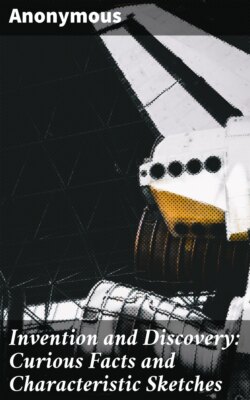Читать книгу Invention and Discovery: Curious Facts and Characteristic Sketches - Anonymous - Страница 14
На сайте Литреса книга снята с продажи.
CHILDHOOD OF PASCAL.
ОглавлениеTable of Contents
Pascal, the celebrated French philosopher and divine, (whose life, Bayle affirms, is worth a hundred sermons), evinced such early ardour for knowledge, that, at the age of eleven, he was ambitious of teaching as well as learning; and he then composed a little treatise on the refractions of the sounds of vibrating bodies when touched by the finger. One day he was found alone in his chamber, tracing, in lines of coal, geometrical figures on the wall; and, on another occasion, he was surprised by his father, just when he had succeeded in obtaining a demonstration of the 32nd proposition of the first book of Euclid—that the three angles of a triangle are equal to two right angles. Astonished and overjoyed, his father rushed to his friend, M. Pailleur, to announce the extraordinary fact; and the young geometer was instantly permitted to study, unrestrained, the Elements of Euclid, of which he soon made himself master, without any extrinsic aid. From the geometry of planes and solids he passed to the higher branches of the science; and, before he was sixteen years of age, he composed a treatise on the Conic Sections, which evinced the most extraordinary sagacity. When scarcely 19 years of age, too, Pascal contrived a machine to assist his father in making the numerical calculations which his official duties in Upper Normandy required.
In later life, Pascal found researches in geometry an occupation well fitted to give serenity to a heart bleeding from the wounds of his beloved associates. He had long before renounced the study of the sciences; but during a violent attack of toothache, which deprived him of sleep, the subject of the cycloid forced itself upon his thoughts. Fermat, Roberval, and others, had trodden the same ground before him; but, in less than eight days, and under severe suffering, he discovered a general method of solving this class of problems, by the summation of certain series; and as there was only one step from this discovery to that of Fluxions, Pascal might, with more leisure and better health, have won from Newton and from Leibnitz the glory of that great invention.
